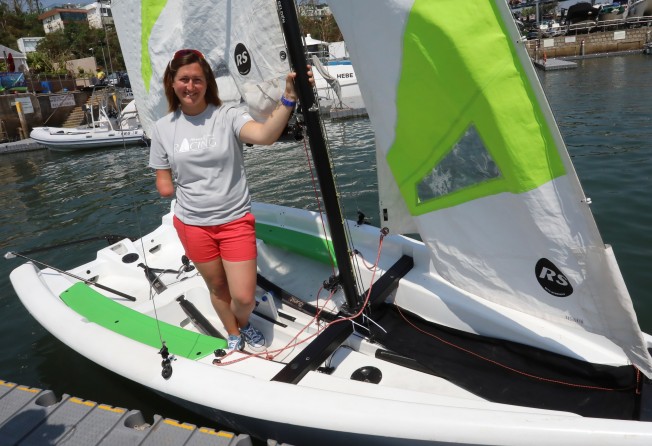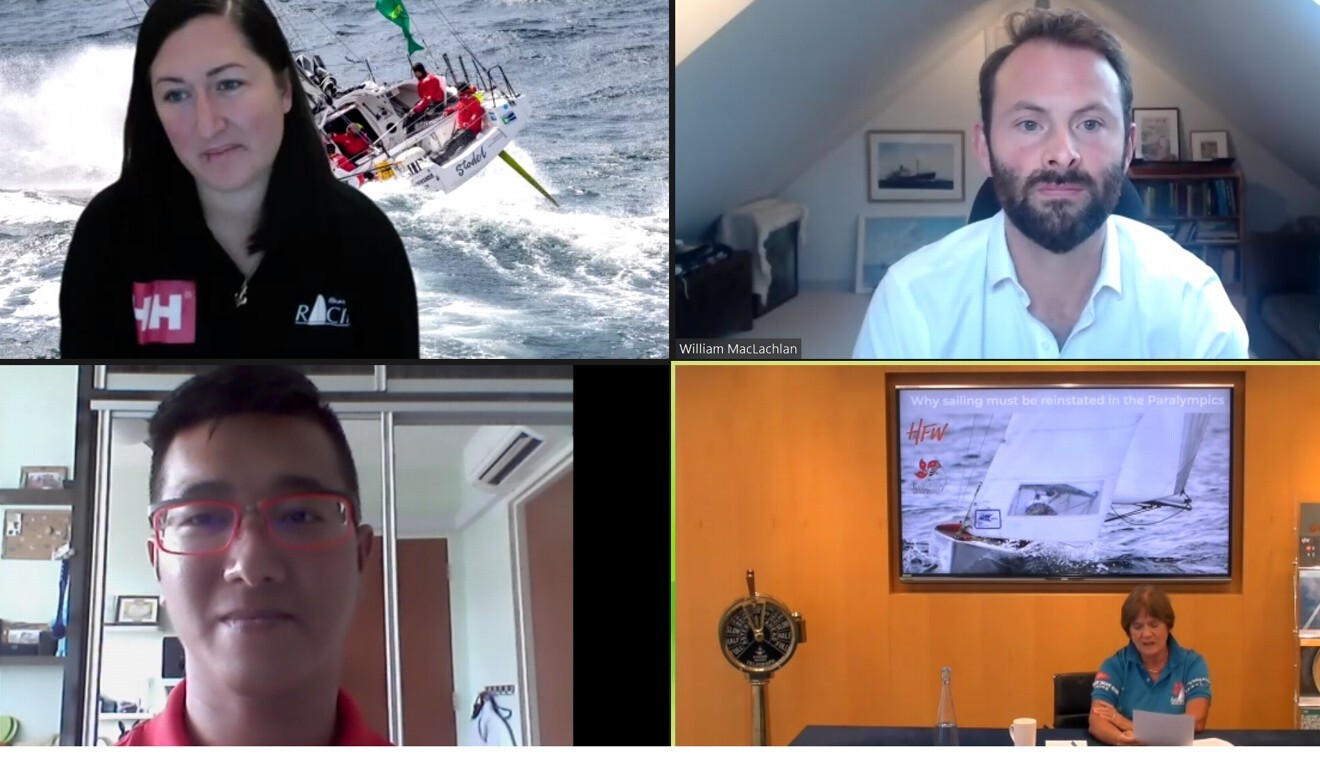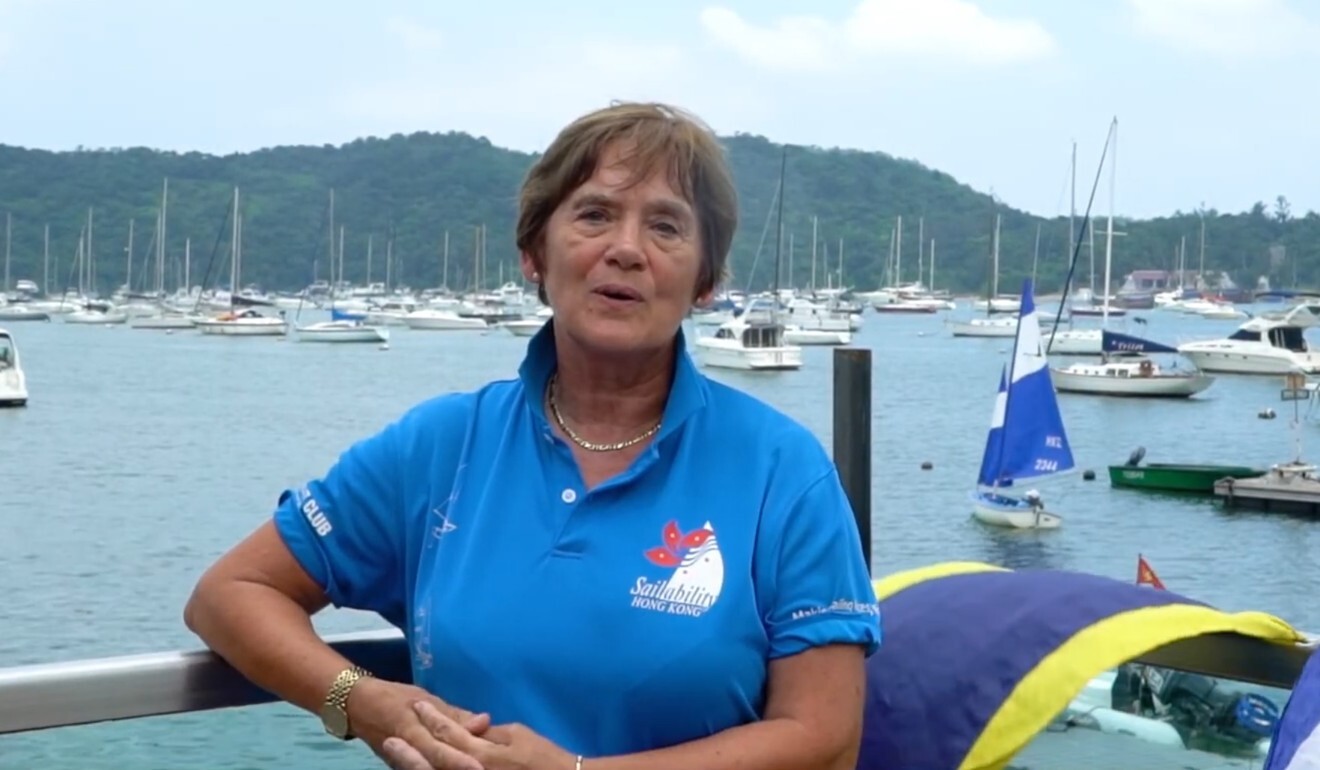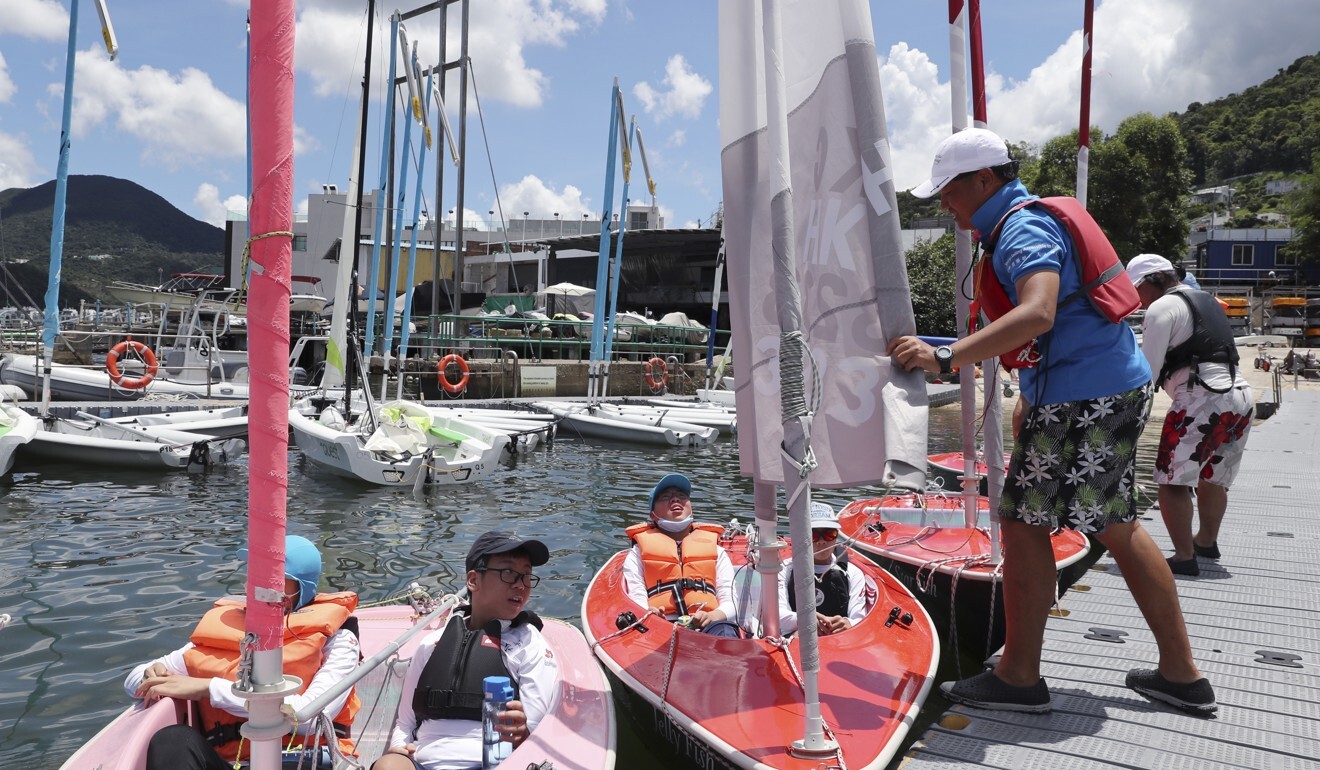Paralympics: Sailability Hong Kong’s Kay Rawbone joins global campaign to reinstate sailing in Para Games
- More than 40 countries now have disabled sailing programmes after the sport was removed from the roster because of a lack of entries
- Rawbone, British sailor Hannah Stodel and Singapore’s Jovin Tan discuss ways to strengthen disabled sailing’s case for the Games

Sailing’s attempts to return to the Paralympics fold is on track but sailors need to show more consistency taking part in international events, said Great Britain’s four-time Para Games athlete Hannah Stodel.
Sailing was struck off the Paralympics roster after the 2016 Rio de Janeiro Games – low participation rate being among the reasons – but the international sailing community, including Hong Kong Sailability co-founder Kay Rawbone, is on a campaign to reinstate the sport.
“We didn’t have enough countries taking part,” said Stodel, who along with Rawbone, Singapore Paralympian Jovin Tan and moderator William MacLachlan, of HFW Events, took part in a webinar on Thursday titled “Why sailing must be reinstated in the Paralympics”.
“The target number is 32 and we are much past that now and sitting on around 42. At the time, our numbers were a little on the low side.
“But it’s not only about the numbers. It’s also about consistent participation. While sending one country to one event is good for numbers, it’s not good for constant participation.
“One international or regional event a year is better. It’s not only beating a number but having a sustainable platform for continued racing,” Stodel said.

Rawbone and her late husband, Mike, launched Sailability Hong Kong in 2009 and played a major role in introducing people with disabilities to sailing, as well as the underprivileged.
The programme helped to produce competitive sailors, with Hong Kong winning a bronze medal at the Asian Para Games in Incheon in 2014, and also gave thousands of people the chance to sail.
“Our sailors have tremendous passion to do better and to achieve in their sport as other athletes do,” said Rawbone. “They work as hard as athletes without disability, probably harder, giving up time for training and attending competitions and this really needs to be recognised.

“Organisations like ours make these opportunities happen, enabling sailors to showcase their abilities and their commitment to the sport, as well as fulfilling their dreams. Paralympic sailors can and deserve to be able to compete on the world Paralympic stage again.”
Tan, who suffers from cerebral palsy and is also a four-time Paralympian, won a gold medal at the 2014 Incheon Asian Para Games, which has also dropped sailing from its programme.
“Without sailing I wouldn’t be where I am now,” said Tan. “I took up sailing to escape, I was able to travel and meet new friends. I didn’t think I would represent the country at the highest level and I’m sad to know that after Rio sailing was removed from the Paralympics.”

Stodel, who was born without a right forearm, started sailing as a teenager and initially competed on an equal basis with able-bodied sailors with much success.
She did not consider disabled sailing events until she realised they were just as competitive and skilled.
“Growing up, both my parents were fierce sailors and had attitude,” she said. “I believed I could do what everyone else could do, so I started my career against able-bodied sailors. Disabled sport was a weaker option and I wouldn’t even consider taking part in it.
“My viewpoint has completely changed [after training with disabled sailors] and it made me realise I should be aiming for the Paralympics.
“The biggest thing I learned is the strength of that community, how they support each other no matter what country they are from and that really stuck out for me.
“I’m sad sailing is no more on the Paralympics roster, not so much for myself because I planned to move on after Rio anyway, it’s more for the people coming up.
“I want to fight for those people. There’s nothing more special than putting on a team tracksuit to represent your country and I think everyone should be given a chance to do that.”